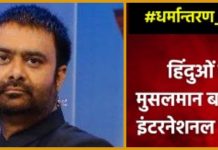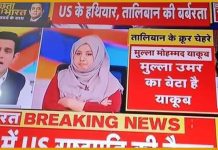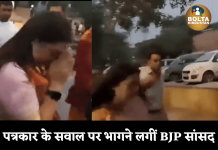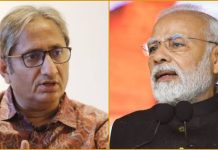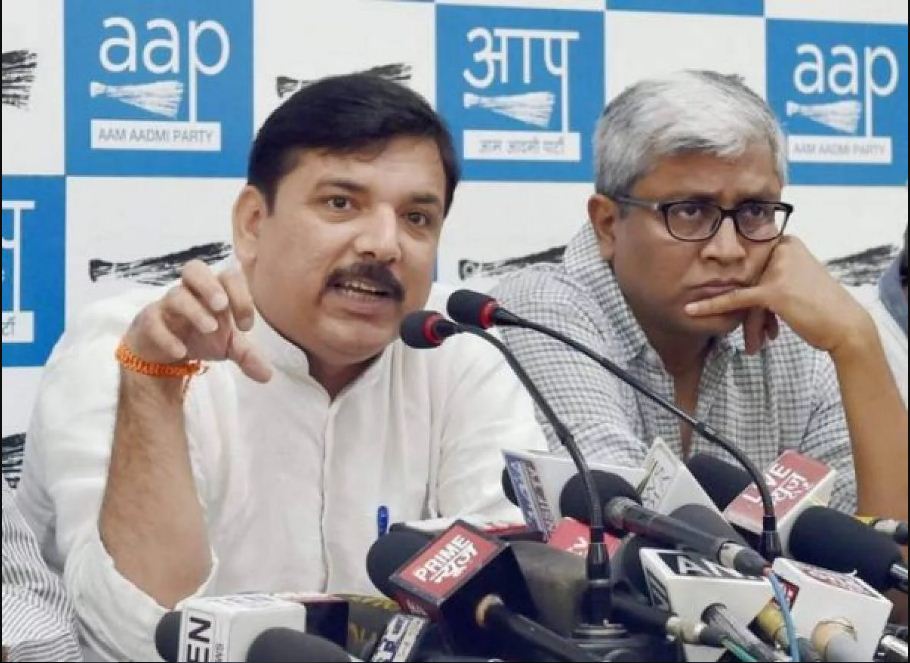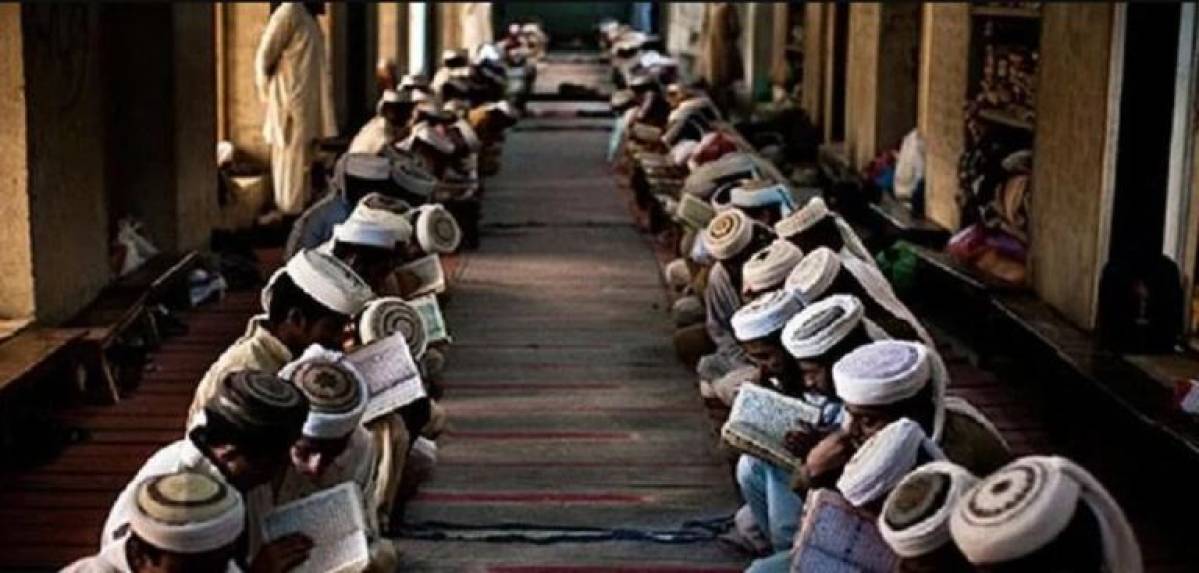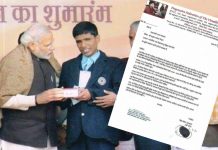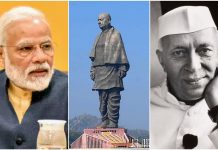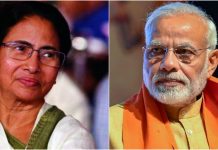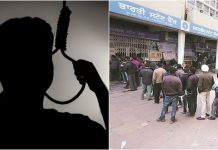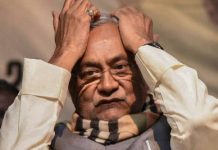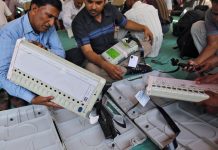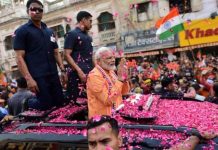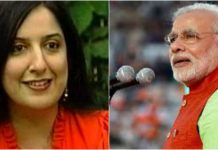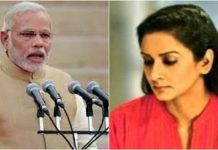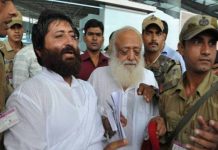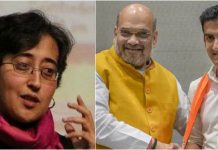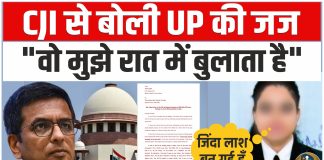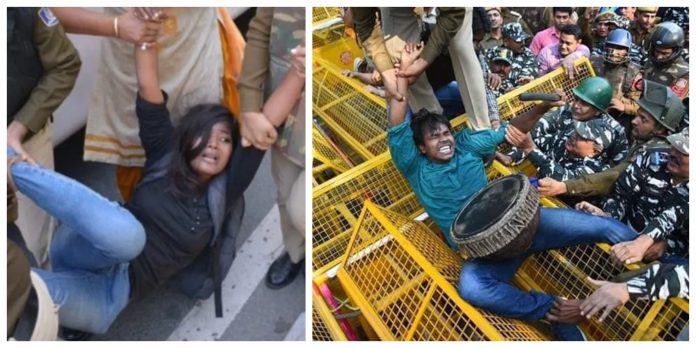
Few weeks ago, as soon as the announcement of Noble Prize for economics 2019 came out, Indians from all over the world flooded social media with pride gestures. Prime Minister Narendra Modi who was silent on journalist Ravish Kumar getting Ramon Magsaysay Award, came out in open to congratulate Nobel Laureate Abhijit Banerjee.
Excellent meeting with Nobel Laureate Abhijit Banerjee. His passion towards human empowerment is clearly visible. We had a healthy and extensive interaction on various subjects. India is proud of his accomplishments. Wishing him the very best for his future endeavours. pic.twitter.com/SQFTYgXyBX
— Narendra Modi (@narendramodi) October 22, 2019
Abhijit Banerjee was getting lauded by people from different walks of life. After all it’s the second Indian after Prof. Amartya Sen getting honored with the most respectable award in the field of economics. It was a big day for India and indeed for JNU too. The JNU community too rejoiced and embraced the achievement of its alumni with utmost pride.
Few weeks later, JNU students once again are in the limelight all over the media for protesting against the fee hike and certain unwelcome changes in the upcoming hostel manual of the university. And once again I see the social media pooled with misguided attacks on JNU for being the most maligned anti-national university (as the popular conception claims it).
देशद्रोही JNU,J N U को बँड करो
— Anand ?????? (@borateanand1976) November 19, 2019
This scenario evidents the reality of post truth era we are living in. To all those who keep questioning the existence of JNU and tag students’ protests there as arbitrary, I really hope they have very well researched about the university. The ongoing protest is the battle to defend the idea of India’s public education system since last 50 years. How many institution we have in India that offer academic fee of hundred and eight rupees per semester? Is there any educational institution except JNU which has adopted the idea of Deprivation Points? Deprivation Points are the extra marks added on the final score secured by the students in the entrance examination. It is based on the data collected from Census of India allotted to students coming from the most backward regions and marginalized communities of the country. The idea is to let students from all corners of the country avail the access to quality education, so that their social and economic status can never be a barrier to it.
Before you call them free riders of education, students coming to JNU have paved their way through securing merit in the entrance examination. And this is no lie that students from extremely poor background do study there. Being a former student of JNU, I can assure you that the significant proportion of students there cannot afford to have education anywhere else. Because I have met children of construction workers studying there and surviving peacefully with additional scholarships offered to them by the university.
Beyond affordable access to education, it is about quality education where you are being taught by Oxford, Cambridge and Harvard graduates. Without the Institute of Eminence tag (whose primary purpose is to make Indian universities globally competitive), JNU already holds a noticeable rank in the global educational arena (QS ranking 2019 – History and Sociology departments of JNU under 50 in the world).
Can you name any other university with such curriculum? Even if JNU is being too biased to poor, what’s wrong if we have just one university over thousands which does give a thought to “education for all” in real sense.
Regarding the activism in JNU, answer it for yourself – can you ever imagine any segment of our history without the element of youth politics in it? The renowned political leaders we see today, were all once a part of vibrant active politics in their youth. As Justice D. Y. Chandrachud denoted, ‘dissent is the essence of democracy’, what’s the harm on hearing the side of opinion which doesn’t match to yours, isn’t that our constitution and the democratic system entitles us to. Just because few students do not behave the way you idealize as, nobody has any right to question the credibility of entire university which is much beyond activism and critical questioning. Also, there have been students who see themselves allied to different ideologies coming out in support of the ongoing protests. Be it regular student who does not take part in the political activities in campus, or that student who belongs to non-left organizations can be seen in the protests.
As Prof. Avijit Pathak writes, ‘Even though the university has been projected as a ‘troubled’ campus filled with ‘anti-national’ students and ‘ethically irresponsible leftist’ teachers, the fact is that it is still a university where ideas flourish, books are loved and discussed and classes held with absolute regularity; debates take place, Marx too is problematised, Ambedkar is not seen as infallible and teaching and research reinforce each other’.
After all, it is the second best university in India as per the ranking done by the government, which didn’t evaluate it on the basis of it’s political vibrancy. And for your information, when IAS officers trainees undergoing training at Lal Bahadur Shastri National Academy of Administration, Mussoorie, get a MA degree in Public Management from JNU by the end of their training.
Next time you question my nationality or say “JNU waalon ko protests ke alawa aur koi kaam nahi hai”, just understand that we are living in a space where people like to question and find answers. I guess there is nothing against nation when one wants to find answers for its development only. Till then Vive La JNU!
One more point is worth noting- JNU may have some problems which need to be dealt with, JNU may need improvement in some areas; but it is definitely not sorry for raising valid questions. It is not sorry for thinking about making education affordable by everyone. Because education is not a commodity, it is a right.
Priyanka Tiwari (Former student of Center for Political Studies) Note : This article has the personal views of above mentioned author


